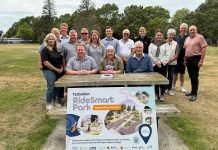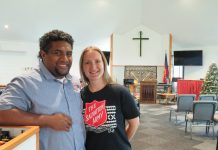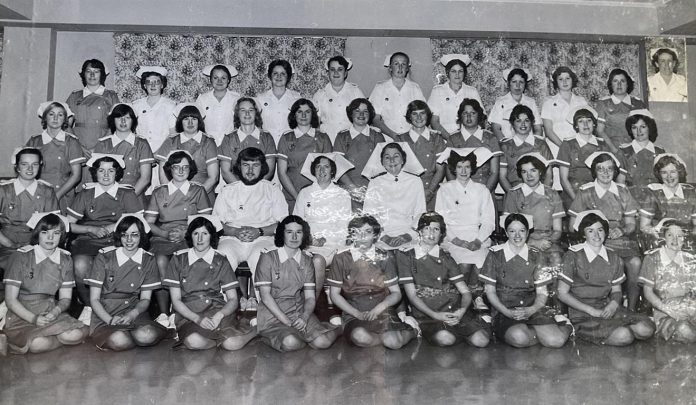
Two Ashburton nurses who started in their profession 50 years ago have been recalling memories of their training.
Ashburton Hospital district nurse Liz Harris was 17 when she started her training, at Timaru Hospital.
The same year, 1974, Ros Gibb trained at Christchurch Technical Institute, becoming one of the earliest nurses to be trained outside the hospital.
Liz Harris trained alongside fellow Ashburton student nurses Helen West (nee McDowell) of North Canterbury, Heather Jeffrey (nee Hanson) of Dunedin, Nicki Williams (nee Harris) of Auckland and Bev Webber (nee Kelk) of Timaru.
Recently the five attended their 50th anniversary nurses’ reunion in Timaru.
‘‘They paid us while we trained. We had such fun,’’ Harris said.
‘‘I always knew I wanted to be a nurse. We lived in the nursing hostel and there were some strict rules. I remember we had to sign a document to say we wouldn’t have a relationship with any of the patients,’’ Harris said.
‘‘On the day we arrived at the hostel, our parents dropped us off and we were told to get into our uniform, which consisted of a white uniform with a collar, wide belt, cap with black stripes, the more stripes the higher the rank.
“There were no instructions on how to wear the uniform,’’ she said.
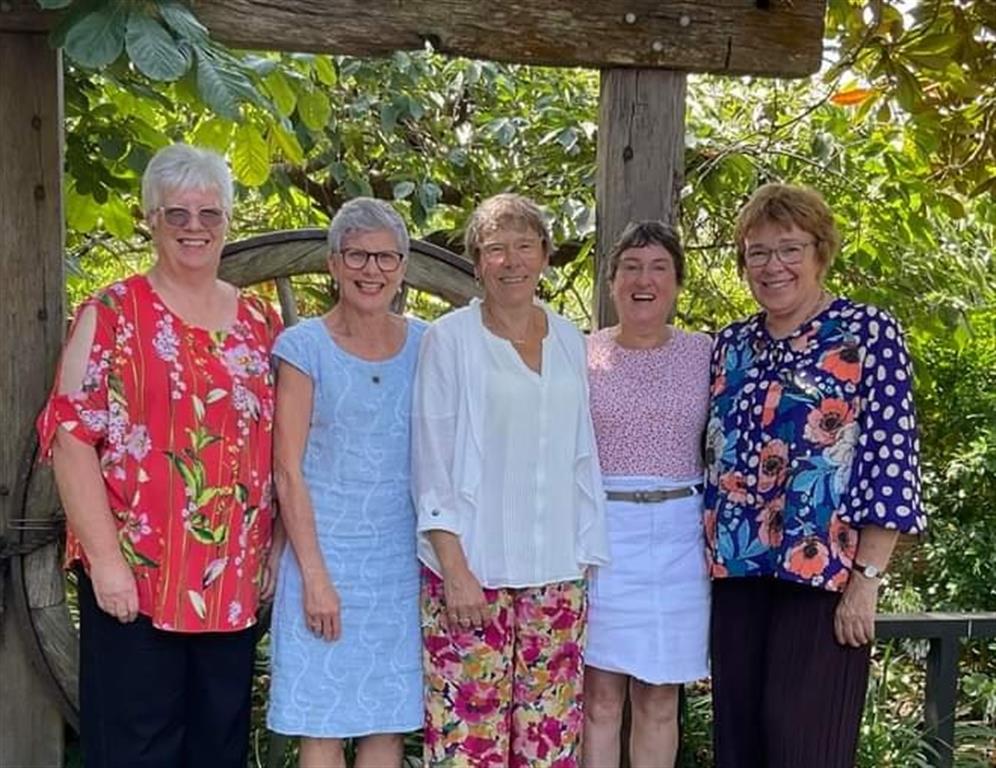
After three years, the nurses were able to manage the ward in the absence of the charge nurse.
‘‘When we were training and in our early nursing years the charge nurse were like god of their area, we were terrified of them as they were a force to be reckoned with.
“They were hard women who were firm, but we respected them. We would sometimes hide from them in the sleuth room,’’ Harris said.
She said today she missed the ‘‘holistic’’ way of nursing.
‘‘When we trained, we took a holistic approach to care, we did things like wash a patient. Today, health care assistants wash patients. I haven’t washed a patient in a long time.
“I miss the holistic approach to nursing. District nurses also used to wash patients but now others come in and do that,’’ Harris said.
‘‘For many years the evening district nurses were accompanied by Red Cross volunteers.
“They helped wash patients and get them to bed. We had so much fun out with them and their help was seriously appreciated. And to a degree they also provided security coming with us,’’ Harris said.
Many of those Harris trained with worked their way around the world going to places such as the United Kingdom and Saudi Arabia.
Harris went to Alice Springs. With a significant number of Aborigines living there, it gave her the experience of another culture.
‘‘It gave me a completely different perspective on life, they saw things differently to me,’’ Harris said.
Gibb is also looking back on the last 50 years, especially following her recent retirement as an Ashburton Hospital staff nurse.
She said being one of the first nurses to be trained outside the hospital had been a challenge.
‘‘We were stigmatised and looked down on in the early days, but times have changed and now it’s the norm,’’ Gibb said.
Retiring after 50 years of nursing is Ashburton Hospital nurse Ros Gibb.
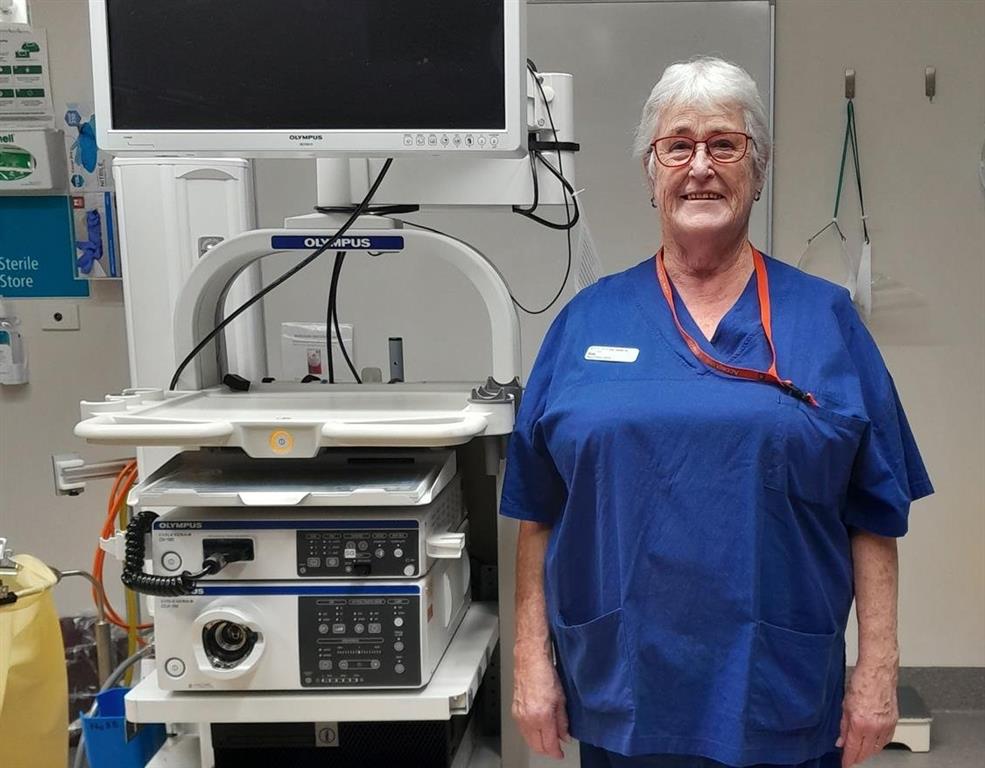
Like Harris, Gibb travelled after becoming qualified.
On qualifying she worked in Timaru Hospital, before heading overseas gaining her English and Scottish nursing qualifications.
She worked in a private hospital in London as well as home nursing.
On returning to New Zealand she began work at Dunedin Hospital in the orthopaedic ward. In 1983, she started a 41-year long career at Ashburton Hospital, where she worked in a variety of areas including the wards and theatre.
For the last 19 years, Gibb has worked in endoscopy, coping with interruptions from earthquakes and Covid-19.
She worked on the surgical bus that visited Ashburton after the theatres were demolished post-earthquakes.
Gibb has also been a health and safety representative for 32 years.
She said she had seen a lot of change during her career.
“We’ve gone from being task orientated to being much more patient focused, and from a staff of student nurses to a fully qualified staff.
“The introduction of technology has also been a big change, going from hand-written notes to computer programs for notes and medications, and software for documenting procedures in endoscopy,’’ Gibb said.
A role she had been particularly proud of was being one of the first two nurses in Ashburton trained to give chemotherapy to bowel cancer patients.
She said she had a slightly shaky start to her theatre nursing career.
“I was very nervous starting work in theatre, thinking I would not be able to cope and that I was going to faint. But surgical nursing and theatre nursing, along with endoscopy became my favourite roles over the years.
“Working with my colleagues has been a highlight. It’s the people, both staff and workmates, that have made the job so memorable,” Gibb said.
‘‘Things are so different now, people are sicker, there are more complex health issues and we have had years of pay negations as nurses aren’t paid properly.
“People are sent out of hospital earlier these days and as such more care and support in the home is offered,’’ Harris said.

